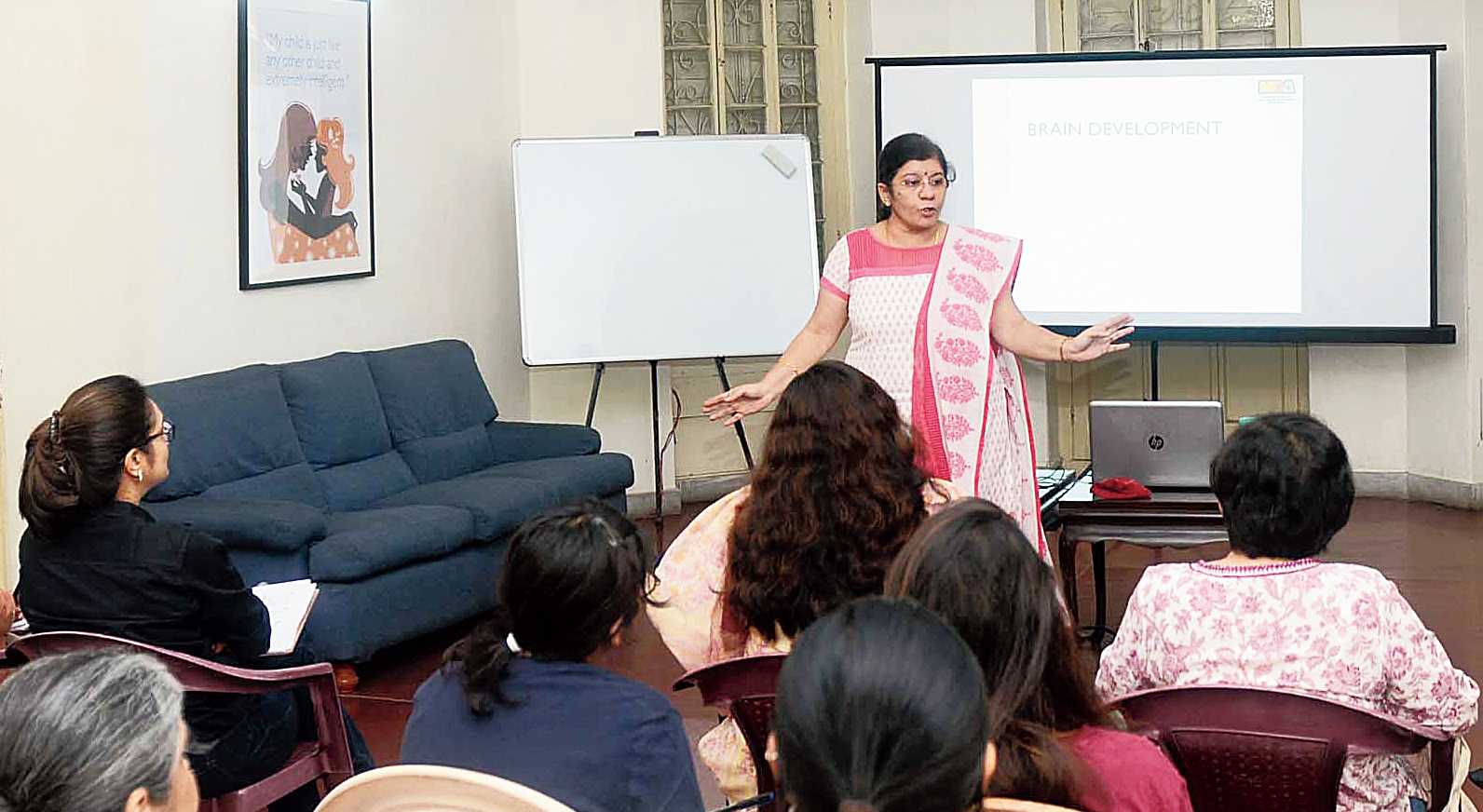A mother of a dyslexic teenager who wants other parents to empathise more with their children and help them and a teacher who wants to equip herself better to help a dyslexic child cope in class are among those who have enrolled on a five-week course on learning disabilities.
Children with dyslexia should be identified and helped at the primary level, said a special educator who conducted the first day of training on identification and training methodology for children with dyslexia. She stressed the need for resource rooms in schools to reach out to children from kindergarten to Class V.
“If children are not identified or helped early, the problem compounds by the time they reach secondary or senior school. It is for schools to accept the difficulties and support the children,” said Lata Vasanthakumar, training head at Madras Dyslexia Association.
The certificate course conducted by Breaking Through Dyslexia, a city-based organisation working on learning disabilities, in association with Madras Dyslexia Association, was attended by 23 people, mostly teachers, mothers and students.
One in every 10 children is dyslexic in India, according to some estimates, but those working with children with dyslexia said the statistics did not take into consideration children in rural areas.
A person with dyslexia has trouble spelling words, reading quickly, writing and pronouncing words and understanding what is read.
A mother whose 16-year-old son is dyslexic felt she could reach out to other parents and share the remedial measures with them, some of which she learnt while working with her own son over the past 10 years and some she hoped to acquire during the five-week training.
A school counsellor felt the course would teach her how to help a child with learning disability in school and not just refer her to someone.
“When mainstream teachers are trained to identify a child with dyslexia and remedial methodology are discussed with them, they can spot a child with mild to moderate difficulty in the classroom,” Vasanthakumar said.” “A child with severe or profound dyslexia will find it difficult to survive in a mainstream class and the trained teacher will work on building the child’s skill to bring it up, if not to the class level, to a level lower, within a span of a year. This would ensure the child remains in the mainstream and is not sent out of school.”
The course will enable teachers to analyse children in depth, assess them and find out the extent of difficulty.
“A dyslexic child has difficulty in performing within the school curriculum. A person trained in handling multiple disabilities will be aware of all the disabilities but will not be specialised in handling a child with dyslexia,” she said.
Breaking Through Dyslexia had approached several reputable schools in the city to send their teachers for the course and some of them answered to the call.
“I will be equipped with certain techniques to understand and help the child in a mainstream environment rather than referring her to a special school,” said Nilanjana Bhattacharya, counsellor at The BSS School.
More awareness and more training would also mean reaching out to more children. “If I train more teachers, each teacher would be able to work with that many children and the reach will be greater,” said Aruna Bhaskar, special educator at Breaking Through Dyslexia.
The founder trustee and president of Breaking Through Dyslexia, Divya Jalan, felt resource rooms would not only help children with learning disability but also those who are weak in spelling, reading or maths.
“The response from the schools was positive but they cannot spare teachers for five weeks during school days. We plan to work out a schedule according to their convenience,” she said.
The training will also include dyscalculia (difficulty in mathematics) and dysgraphia (difficulty with written expression).










